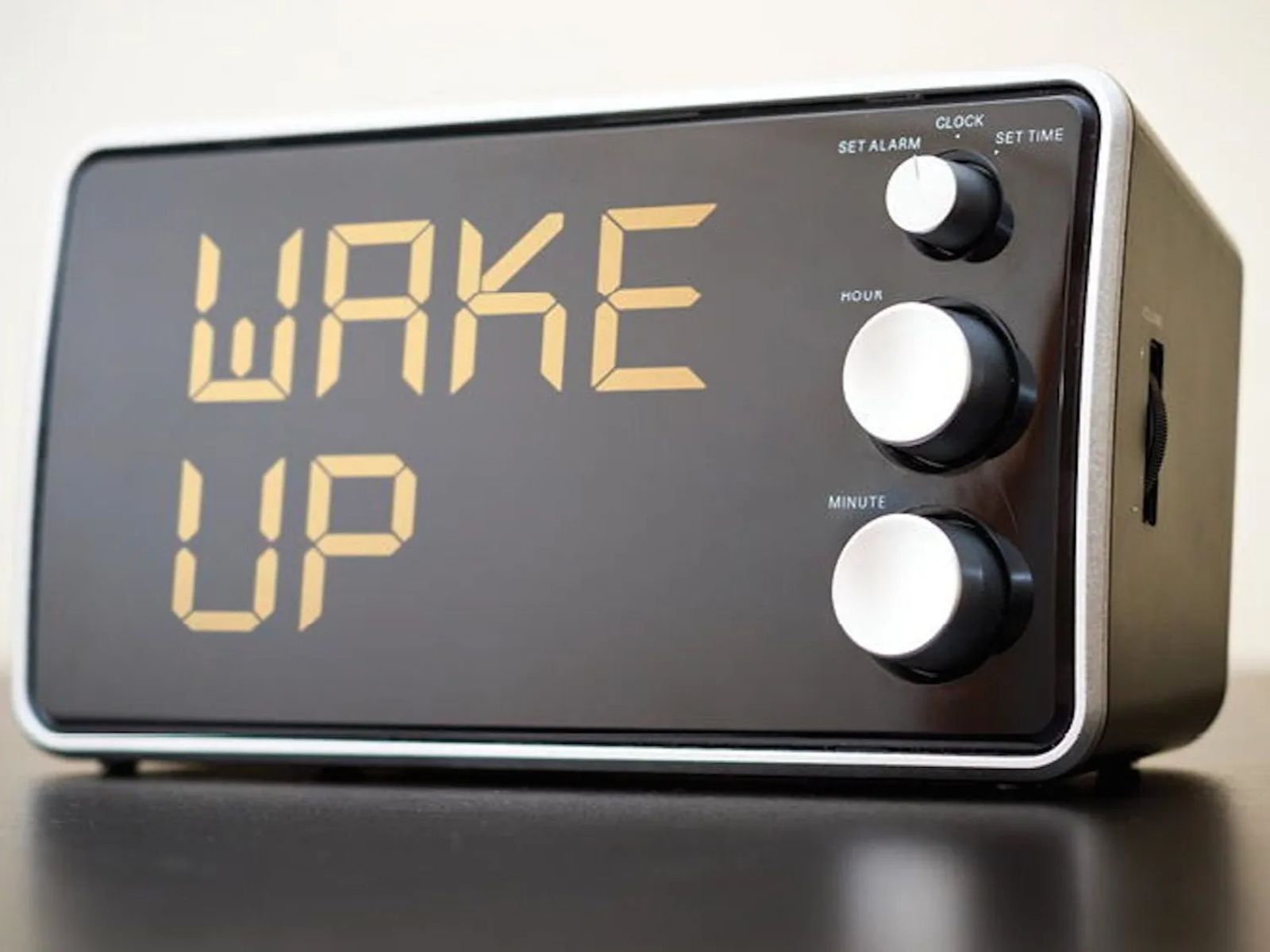
The Secrets Behind a Great Snooze....
An eye-opening look at sleep
We all know the symptoms of a lousy night’s sleep – heavy eyelids, a cranky attitude, a lack of motivation, and an inability to focus on everyday tasks. As you order that second triple-shot latte, maybe it’s time to consider sleep and the impact it has on your life.
We spend – or at least we should be spending – a quarter of our day asleep, and while it seems like a passive activity, it’s really one of the most important parts of your day.
“Sleep is not an on-off thing. It’s a pretty complex process,” says Dr. Robert Merchant, Chief Medical Officer and pulmonologist at Billings Clinic.
For most people, a good night’s sleep is about seven to eight hours. Some people need more and some need less. However, time isn’t the only factor. There’s quality as well. A good night’s sleep is also restorative, says Dr. Merchant. If you’re getting a solid eight hours of sleep, but you’re feeling drowsy during the day, your sleep might be interrupted. You may not even know it.
A CLOSER LOOK AT SLEEP
Sleep is a process. It starts with light sleep, transitions into a deeper state, known as delta sleep, which is marked by slow-wave brain activity. Then, sleep peaks with the deepest sleep state, known as REM, which means rapid eye movement. It’s during REM sleep that the most vivid, active, and involved dreaming happens. Most people cycle through all the stages every 90 minutes or so throughout the night. This means that it’s not uncommon for people to wake up multiple times a night – up to four or five times, Dr. Merchant adds.
“It’s okay, as long as you’re getting back to sleep right away,” Dr. Merchant stresses.
Studies have shown that during the delta stage the brain goes into its most restorative state. Dr. Merchant and others who study sleep are not sure how it works, but one theory is that hormones in the brain trigger a drainage system similar to the lymph system where toxins are flushed out.
Studies using MRI have also revealed that during REM sleep, brain activity mirrors the activity of the awake brain. The brain is active, but not with thinking, but rather processing.
“We think it’s establishing connections that preserve memories,” Dr. Merchant says.
SLEEP & YOUR HEALTH
There are a host of health problems that can be caused by sleep disorders.
Sleep disorders have shown to have a significant impact on the cardiovascular system, Dr. Merchant says. It is linked to a higher incidence of heart attacks, stroke, and heart arrhythmia. A shortage of quality sleep can also cause hormonal imbalances that impact metabolism. Two hormones are linked to appetite – leptin and ghrelin – and poor sleep appears to trigger the appetite-stimulating ghrelin, Dr. Merchant says. This leads to weight gain and an increase in insulin resistance. This insulin resistance can destabilize diabetes. Very preliminary studies have also linked sleep disorders with an increased risk of Alzheimer’s disease, he adds.
Immune functions are also negatively impacted by a lack of sleep, not to mention poor sleep’s impact on day to day activities like memory, focus, and concentration. It affects mood, and people become irritable when they’re tired.
“Most of us know that but we need to realize that it has real-world consequences,” Dr. Merchant says. “People with sleep disorders have a higher incidence of divorce and they’re more likely to be fired from their jobs.”
Sleep impacts all avenues, literally. Statistics show that about 20 percent of all motor vehicle accidents are related to inadequate sleep. The public health implications of inadequate sleep have been very carefully studied, Dr. Merchant says, and experts attribute the Chernobyl disaster, the wreck of the Exxon Valdez and the Challenger explosion to sleep deprivation.
A GOOD NIGHT’S REST
The key to sleeping well, is to set yourself up for success.
Sleep is tied to circadian rhythms – known more informally as our “biological clock.” Circadian rhythms follow a 24-hour cycle, and tell our bodies when to fall asleep and when to wake up. The evolution of circadian rhythms is based on the cycle of the sun. As daylight wanes, our bodies prepare for sleep, and as the sun comes up, our bodies respond by waking.
This sensitivity to light plays an important role in getting a good night’s rest, Dr. Merchant says. A dark room and limiting exposure to bright light for a couple of hours before bedtime are key steps to good sleep.
“Screen time – when you’re staring at a light -- is very problematic,” Dr. Merchant says. “I advise avoiding screens for at least two hours before bed, and certainly screen time after bed should be avoided.”
Sleeping in a cooler room – between 62 and 65 degrees—can help you sleep better, and sound is another aspect of good sleep. A quiet room is best, and it’s a good idea to wind down before bed with quiet activities.
“The mind has trouble making a quick transition from activity to sleep, so spend some time relaxing,” Dr. Merchant advises.
Although everyone is different, caffeine, a stimulant that takes several hours to metabolize, should be avoided for at least eight hours before bed. And, so should alcohol, Dr. Merchant says. Alcohol has a bi-modal effect. The initial effect makes you sleepy, which can help you fall asleep, but the sleepiness is followed by a stimulating stage, which disrupts your sleep later in the night.
If you like to sleep with your furry friend at the foot of the bed, that’s another no-no. Since animals have different sleep cycles than humans, they can wake their human sleeping companions, causing unnecessary sleep disruptions.
In the long run, a pattern of good sleep includes a regular bedtime and a regular time for waking. If you must skimp on sleep, make sure you wake at the same time even if you think you might need the extra rest. Surprisingly, according to Dr. Merchant, a delayed bedtime doesn’t seem to have the same impact on the body as a delayed wake time.
Studies show that sleep deprivation is the number one sleep disorder in the United States, and in many cases it can be avoided if people are mindful of their need to sleep and take the right steps toward more restful sleep. Plain and simple, Dr. Merchant says, “Sleep should be viewed as a very protected time.”

Groggy? Irritable? Fighting Fatigue?
You might be a candidate for a sleep study
If you think you’re getting enough sleep and hitting the pillow for a good eight or more hours a night, but you still don’t wake refreshed and you’re having problems with fatigue during the day, you are probably a good candidate for a sleep study. Heavy snorers, and people who don’t fall into regular breathing patterns at night are also at a higher risk of sleep disorders. If you have difficulties with frequent insomnia, that’s worth investigating as well.
Because sleep disorders come on gradually, you may not know your sleep is being disrupted. It’s possible your spouse will know more about your sleep difficulties than you do. He or she will know how loud you snore and may even notice brief instances when you stop breathing, which is known as sleep apnea.
Most sleep disorders are easily diagnosed and treated. To learn more, chat with your primary care physician about your concerns.

THE FOUNDATON FOR SLEEP
Investing in support & comfort
Not sleeping well? It might be your mattress. With so much time spent in bed, it pays to sleep on a good mattress.
“A good mattress provides adequate support and comfort,” says Craig Barthel, owner of Mattress Land USA in Billings. “The whole goal of a mattress is to get you through the sleep cycles and keep you in your deep sleep as long as possible.”
When it comes to support, a mattress needs to support the spine and keep it in proper alignment. A mattress without adequate support will cause low back pain and stiffness as muscles compensate to keep the spine in alignment, says Barthel. “It’s an involuntary movement that causes you to move at night and keeps you from a good night’s sleep,” he adds.
Comfort has to do with pressure points. Everyone has different tastes, but a good mattress should eliminate or reduce pressure on pressure points such as shoulders, hips, and knees.
In addition to a good mattress, a good pillow is critical for good sleep. Barthel recommends to his customers a foam pillow – one that will retain its shape throughout the night. That rules out down and fiber-filled pillows, which need constant adjusting he says.
If you’ve been sleeping on the same mattress for decades, that might be the culprit to your not-so-great-night’s-sleep. Barthel says because of the breakdown of the materials in the mattress, it should be ditched and replaced every seven to ten years.
“It’s one of the most important pieces of furniture in your home,” he adds. “No other piece of furniture will affect your whole day like your mattress can.”











